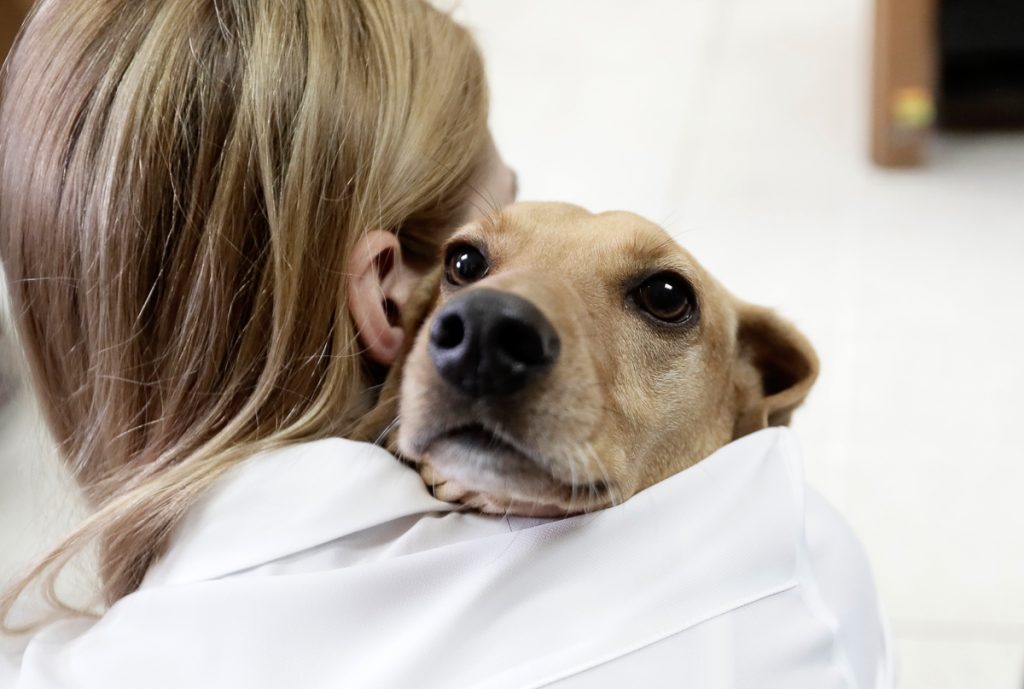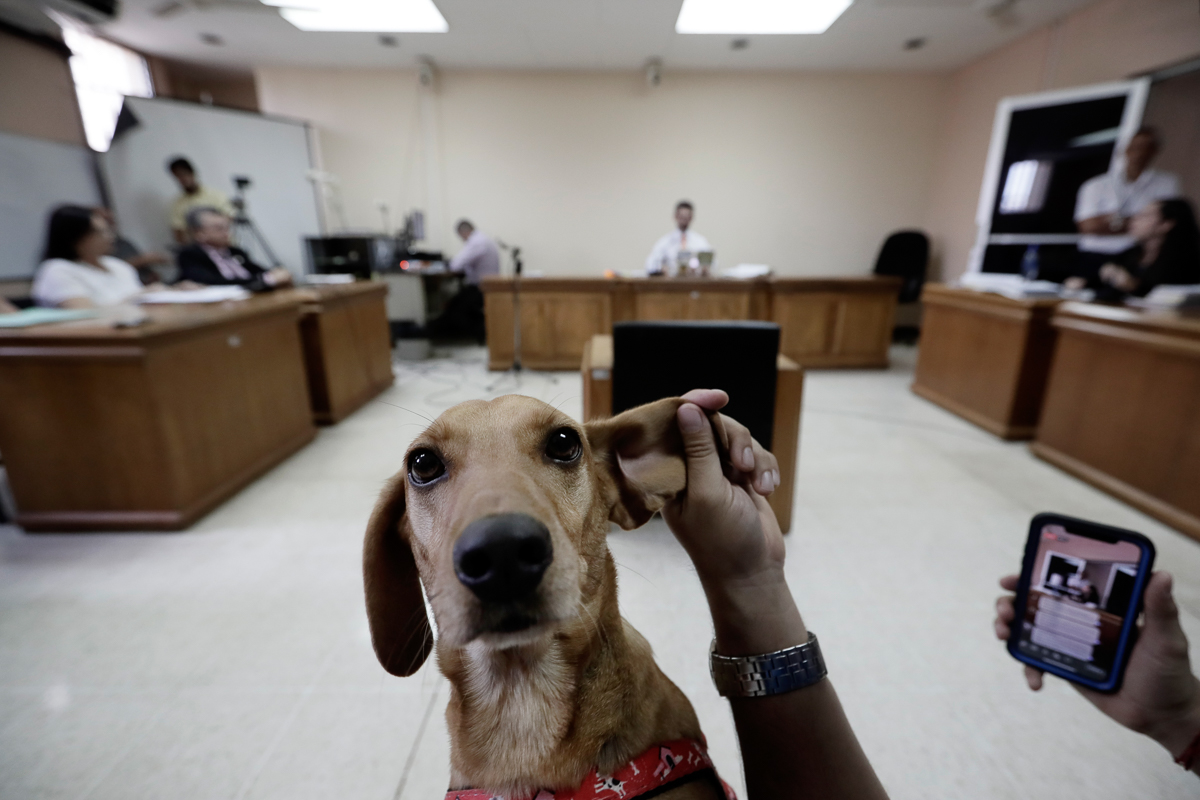On the morning of Sunday, June 11th, 2017, hundreds of people, dogs, cats and even a rooster got together to celebrate.
That day, after a 400-meter march through the heart of San José, on a platform where high-ranking Costa Rican government officials mingled with animals and activists, Costa Rican President Luis Guillermo Solís signed Law 9458 Against Animal Abuse.. This law reformed two previous pieces of legislation: Law 7451 on Animal Welfare, and Law 4573 of the Penal Code.

After many years of discussion—to the point of having been a central theme of the campaign that brought Luis Guillermo to the presidency three years earlier—there was finally a law in Costa Rica that established economic sanctions and imprisonment for those who do not ensure the welfare of their animals, or who mistreat them or cause their death. Before that, Law 7451 and its arm within Law 4573 established superficial obligations and sanctions.
The activity that June morning was a memorable one. Led by Duke, a dog who lost part of his snout in an attack; canine units from different government entities; hundreds of representatives of animal and rescue groups; and families with their pets, the crowd sang, played, swam in doggie pools, and even danced to performances by Costa Rican bands such as Balerom and Marfil.
“Today is a very special day for Costa Ricans because we are here as one family,” says the president during the event, according to La Nación, “We are aware that we have crossed a threshold on a long road to a better moment. It will be built step by step now with a law that guarantees that the mechanisms are perfected, and that the practices are improved.”
The law has now had four years and nine months to walk part of that long road. How many steps have been taken? Although the numbers show results, our conversations at El Colectivo 506 with many of the agencies involved show that the law needs much more support to achieve the impact that was sought that Sunday in 2017.
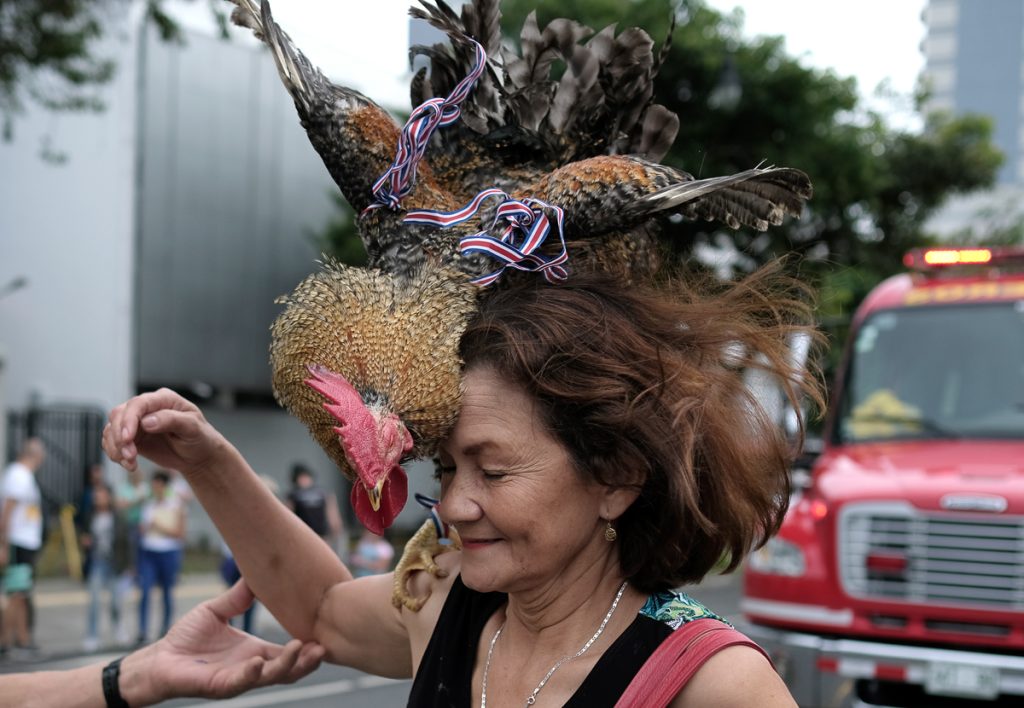
The law in numbers
In Costa Rica, the National Service for Agrifood Health and Quality (SENASA) is the entity in charge of animal welfare and safety, as well as the safety of animal production for food,
The Judicial Investigation System (OIJ), according to its Organic Law, is responsible “on its own initiative, by complaint or by order of a competent authority, it will proceed to investigate the crimes of public action, to prevent the acts committed from being brought to consequences to identify and preventively apprehend the alleged culprits, and to gather, secure and scientifically order the evidence and other information necessary for the investigation.”
That’s why, since the signing of Law 9458, these are the two entities that have been responsible for implementing it. OIJ is meant to receive complaints for physical abuse of animals, or the death of animals, while SENASA is meant to receive broader complaints including improper care of animals; however, the officials involved say people often contact the wrong entity (or both), so they work closely together.
According to information provided by Dr. Iliana Céspedes, a veterinarian from the SENASA Animal Welfare Program, in 2021 alone her department received 4,413 complaints related to pets. These included cases of hoarders, breeding of fighting animals, bad odors, animal-to-animal and animal-to-person bites, noise, and irresponsible sales. Since the year 2012, when this program was created, the annual figured has varied between 3,000 in the year 2020 to up to 6,000 annual complaints.
The challenge? The program Iliana runs is staffed by exactly one person: Iliana. Since the launch of the program, she has been the only person assigned to handle all these complaints. When she cannot deal with a complaint or cannot deal with it alone, she must request the assistance of one of SENASA’s eight Animal Welfare Liaisons. While these officials can provide her with some support, and the responsibility not only to address complaints about pets is within their scope of work, the bulk of their work is conducting inspections to ensure that the safety of the production and sale of animals for food occurs, both for human health and animal welfare.
To date, none of the complaints that have been addressed and processed have generated fines or sanctions.
“In the administrative processes that correspond to SENASA, none of the sanctions issued have resulted in even a penny to the animal welfare program,” says Iliana. “The Administrative Sanctioning Procedure Court (TPAS) of SENASA, which is in charge of implementing the fines, does not have [an effective] way to notify people. If three [attempts at notification] are made and the person does not pay, nothing can be seized. If there was political interest, this would move, because we are all employees.”
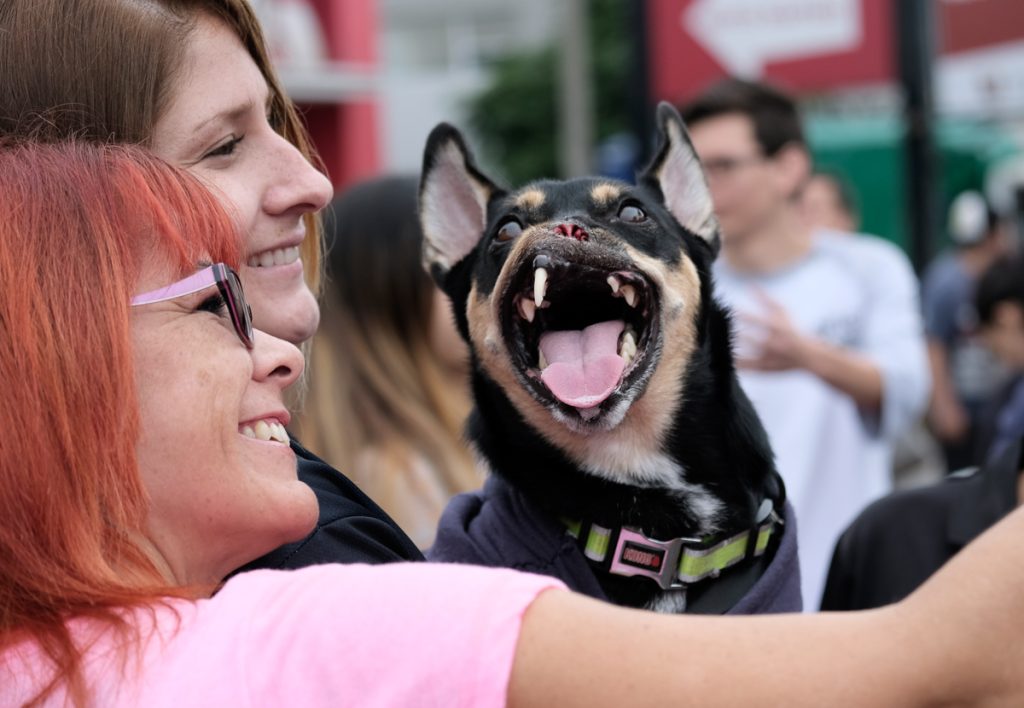
At the judicial level, the statistics are a little different.
According to data provided to El Colectivo 506 by the OIJ Press Department, the OIJ received 994 official complaints at the national level for violation of the animal welfare law from August 2017 to February 2022. The highest figure was reached in 2021 with 217 complaints. In 2022, there have already been 64.
The majority of the complaints occur in the province of San José (286) and Alajuela (149). The types of crimes reported are animal abuse (233), harm to a domesticated or domesticated animal (194), abandonment of a domestic animal to its own devices (24), causing the death of an animal (9), sexual acts with animals (7) and animal inspection for purposes other than research (3).
La ley en acción
Since 2017, the courts of Costa Rica have carried out six criminal proceedings that have resulted in two acquittals and three convictions.
“With the three processes that our organization has won, jurisprudence has already been generated,” says Juan Carlos Peralta, president of the Association for Animal Welfare and Protection (ABAA), an organization that has led efforts to create and implementation of the law. “There were two judges in these three processes.”
The first conviction occurred in 2020 in the Pavas Courts, when a homeless man with the surnames Rojas Araya was sentenced to one year in prison for sexual abuse of a dog. Two women were witnesses in the case, and according to the national presstheir testimony about what happened in October 2017 was decisive for the case.
In February of 2022, two different trials, both in Alajuela and with the same judge, found the defendants guilty of animal abuse and death.
The first was at the beginning of the month and sentenced a man surnamed Gonzáles Araya to three months in prison and five years’ probation, assuming he does not commit another intentional crime, for amputating the leg of a dog with a machete in April 2020. During the trial, the man accepted the charges.
In the second case, a highly publicized trial, a married couple with the surnames Espinoza Leslie and Zúñiga Palladino were sentenced to two years in prison in the Alajuela Criminal Court for the death of a dog in September 2017. According to the accounts published in the press by witnesses of the case, the dog was tortured and then died while tied up with a strap so short that she could not sit or lie down. The couple also received a civil sentence that will force them to pay an amount of money to the plaintiff, the Association for Animal Welfare and Protection.
Despite the sentence, the couple’s prison sentence is conditional. That is, they do not have to go to prison at this time: the judge ordered that they cannot have a pet for five years. If they do not comply with this order, they must serve their sentence in prison.
But not all the few stories that have come to trial have had these outcomes.
The other three cases that were brought to trial to apply Law 9458, both for animal abuse—in Guanacaste 2018, in Atenas and Heredia in 2019—found the accused not guilty. In the Guanacaste case, the court considered that it could not determine that the act of aggression carried out by a man on a dog with a motorcycle trimmer was intentional, according to the press. The case of Heredia ended in an acquittal.
In the case of Atenas, the story is similar.
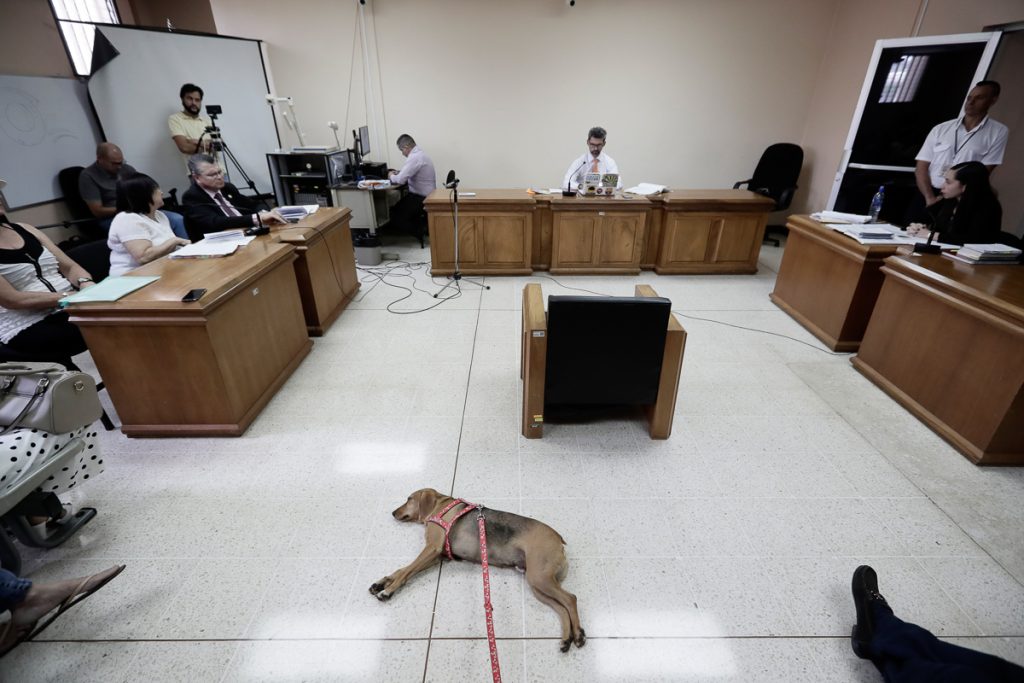
A law for the braves
At the end of 2017, the Athenian Foundation for Helping Abandoned Animals filed a complaint against a woman who had a puppy tied up to the point of causing injuries to its neck.
“The puppy had been tied with a shoelace,” says Dora Castro Herrera, president of the foundation. She received the alert call about the attack and went to look for the animal along with another member of the foundation, Isabel Aguilar. “When he was pulling, like a puppy does, he scratched himself until the cord embedded in his neck. The puppy was hospitalized for about three weeks.”
The brother of the then-owner of the dog was the one who alerted Dora through text messages.
“He was so upset because he had already warned his sister not to have dogs, and the poor puppy had to be tied up,” recalls Dora. “To reinforce what he was telling me, I asked him for a video. That video was shocking to me.”
So Dora, Isabel—who adopted Campeón, the mistreated puppy—and other members of the foundation decided to proceed with the complaint.
“In many of the cases [of animal abuse]—ask any person who rescues animals—many times when you find the dog, you find it on the street and there is no one to blame,” Dora explains. “There are people who are so stupid that they know who did things, and yet they keep quiet. In this case, we did know who the owner was. We thought we had all the ingredients or evidence to file a complaint.”
However, when the trial took place in 2019, the defendant’s brother did not appear to testify. The judge acquitted the accused woman because there was no evidence to determine that she was the one who had tied up the dog.
“You always feel so helpless. It is always half the story,” says Dora. “And the only [story] that we took all the way to the end, which was Campeón, look how it ended! So it was a bad experience for us as rescuers.”
Lawyer Maricruz Uba, who has represented abused animals in 21 complaints, including five of the cases that have gone to trial, provided El Colectivo 506 with a detailed list. Nine have ended in dismissal: that is, the process did not continue “due to lack of evidence” or “due to the absence of witnesses who wanted to testify.” The latter is the most common reason why many of the complaints do not proceed to trial.
“Mother and sister, witnesses to the events, agreed to testify but then refuse for fear of the defendant,” writes Maricruz. She describes another complaint as follows: “It was never possible to notify [the defendant], and despite the fact that there were many witnesses, all neighbors of the subject, only one witness was interviewed by the OIJ, because the rest of the neighbors were overcome by fear and did not allow themselves to be located.”
Despite these experiences, Maricruz continues to see positive achievements in the complaints so far. She is leading the legal efforts surrounding seven more complaints, hoping that those cases will at least go to trial.
“[Campeón] was the first dog that was present in a trial room of the Courts of Costa Rica. Respecting his physiological and recreational needs, several breaks were scheduled so that Campeón could go for a walk, stretch and urinate,” Maricruz points out.
Dora says that her experience has reinforced her philosophy of approaching people who practice irresponsible animal ownership to try to promote change or convince them to put the dog up for adoption: “If I’m going to fight with this man or woman and I don’t manage to take the dog away with me, all I’m going to achieve is that the dog gets abused even more.”
For her, negotiating with the abuser may have more effect than filing a complaint.
“There are cases [of animal abuse], but you know where the end of the road takes you: to a place with no exit, where you turn back after having wasted your time, sad, abandoned,” she says. “However, the [mistreated] animal has at least been cared for.”
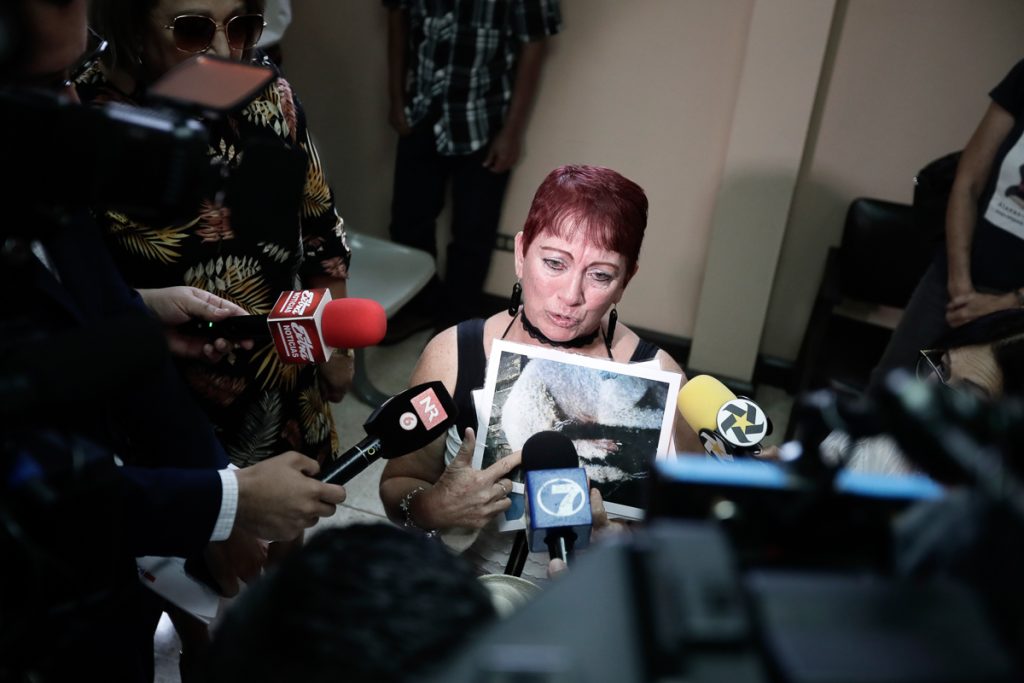
El Colectivo 506 and animal welfare
“The greatness of a nation and its moral progress can be judged by the way its animals are treated,” said Mahatma Gandhi. His phrase has become a symbol of animal organizations and could be seen on many posters during the marches for animal welfare that preceded the signing of Law 9458.
Our media organization wants to report on solutions to problems that affect life in Costa Rica. What solution can be better than the creation of a law that seeks protection and justice for the most defenseless?
We just finished examining our Legislative Assembly for a month during our the March edition, The Lineup, and how the 57 deputies who build and approve the laws of our nation, are meant to prioritize and represent the needs of all citizens. What the work for our April edition, Animal Coexistence, has revealed to us is that although the creation of a law should be a robust solution, its implementation is very complex. It’s quite common that not enough thought is given to how a law will be implemented when the law is being created. As a result, the desired results often remain out of reach.
Although the numbers and actions that we have cited here seem to be positive, next week we will report more on what this law has meant for public officials from SENASA and OIJ; activists from non-governmental organizations; and the general public. We’ll also explore how the limitations around this law are more significant than its achievements.
And we’ll talk about everything that has been learned in these four years and nine months.
Throughout April in Animal Coexistence, we’ll also showcase other actions that are taking place in our country at the governmental and civil level to protect animal well-being. Just maybe, with the passage of time, those efforts will result in significant moral progress for Costa Rica.
